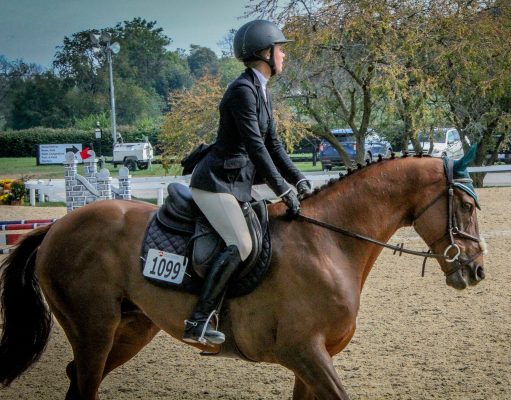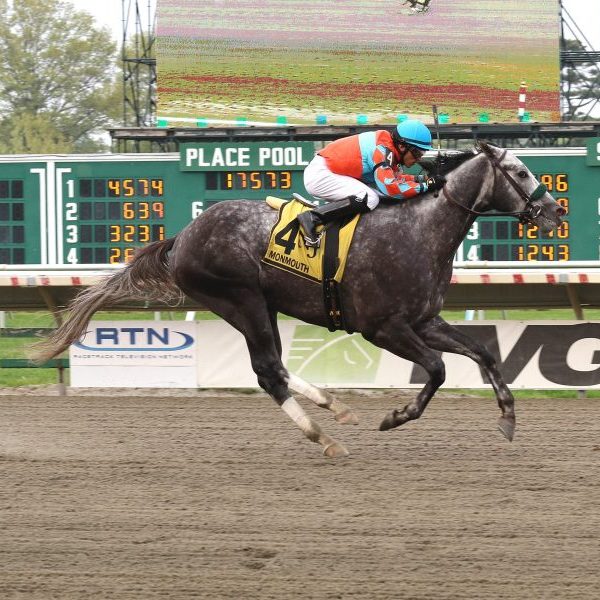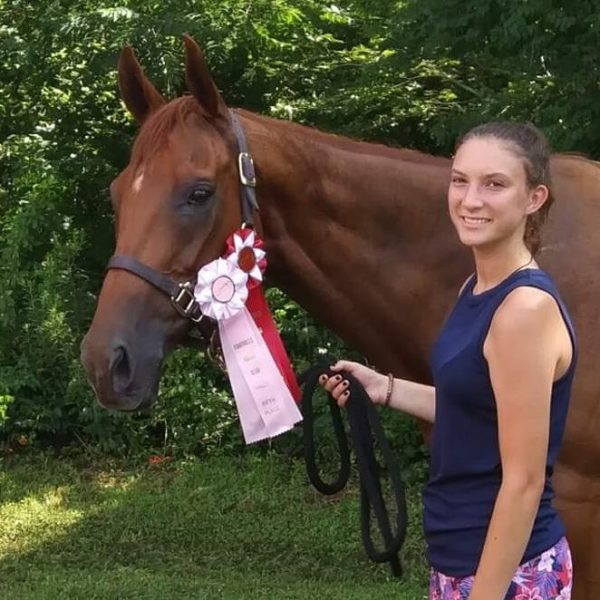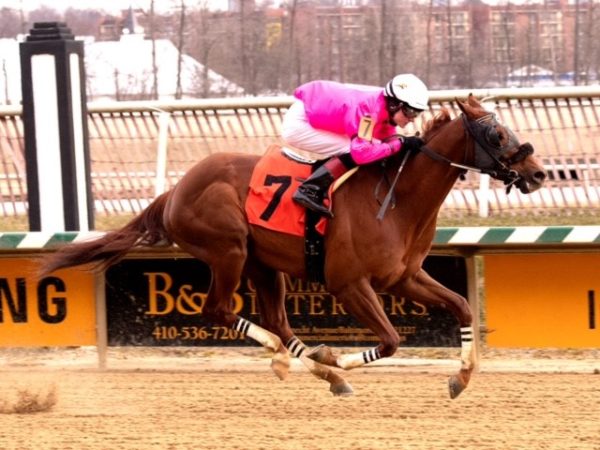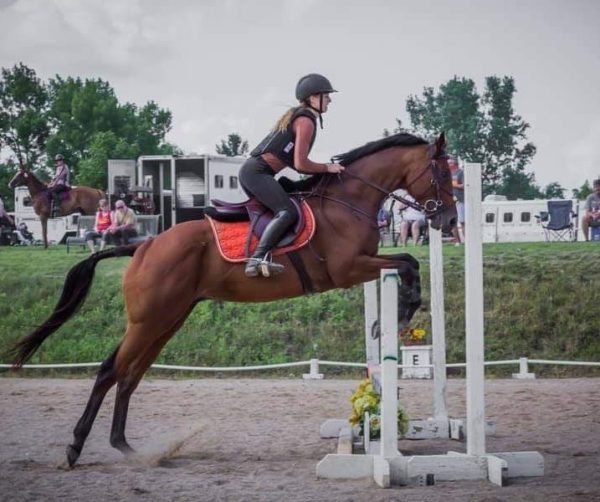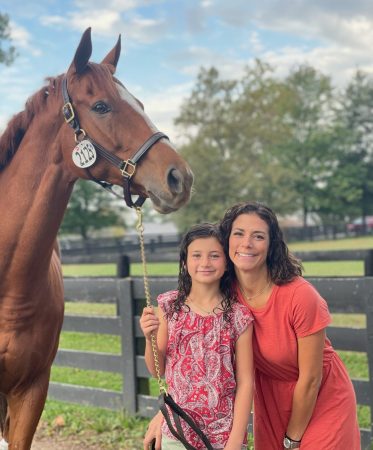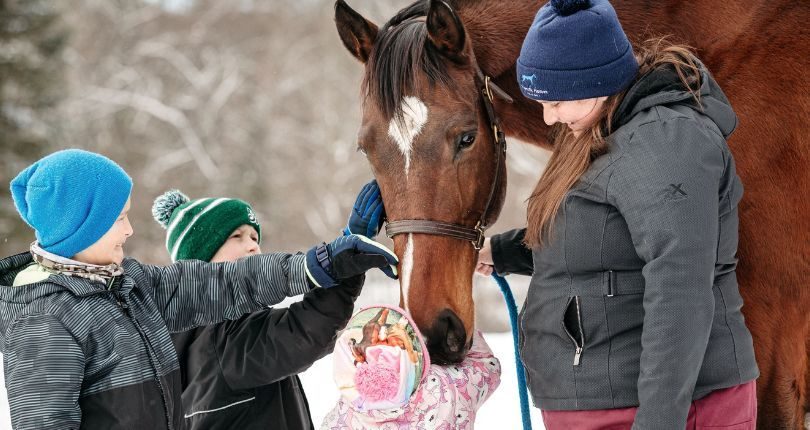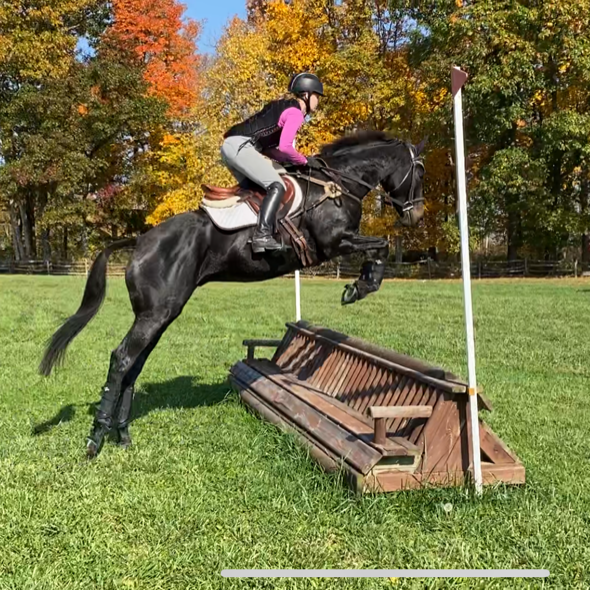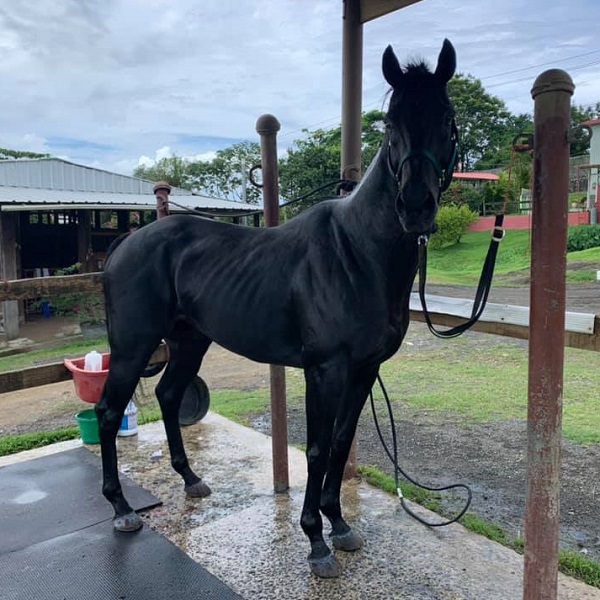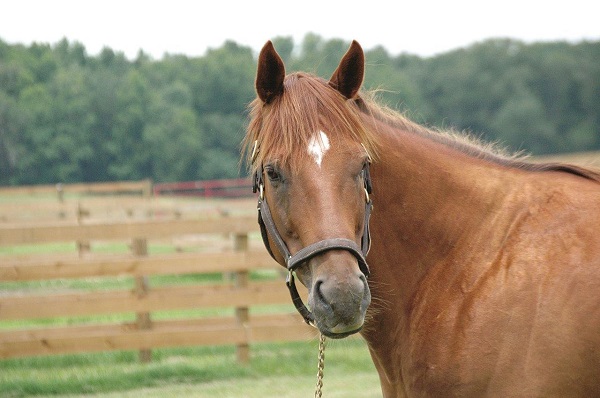Success Stories
It was the spring of 2016 when K C Against World began his journey in the heart of the bluegrass. Bred by Kentucky-based Sun Valley Farm, the son of Verrazano was born on March 14 out of Tamdiid. Later that year, K C Against World sold as a weanling at the Keeneland November sale for $34,000. Trainer and pinhooker Trudy Vienot takes pride in her hands-on approach to horse care and racehorse training. So, when yearling student K C Against World developed a nasty case of cellulitis in his stifle, there was no doubt whether she would be in the clinic with him every day as he fought to get better. “He’d lay on the clinic floor for days,” Vienot recalled. “The vet was afraid he would break the opposite leg and so we had to put an epidural in so he would stay in properly on his good leg. There were days I would go to see him in the clinic that he would not lift his head up off of the ground for a peppermint.” While circumstances seemed dark for the young colt, K C Against World managed to overcome his first big challenge—gaining back his health—and sold at the Keeneland September sale later that year. Purchased by trainer Greg Foley for owner Jeffrey Mullins, K C Against World ran twice on the dirt at Churchill Downs before breaking his maiden in a turf race at Ellis Park in 2019. till, it would seem that racing wasn’t the right fit for the handsome chestnut and he ran just three more times before finding an old familiar face. Vienot had been keeping tabs on K C Against World since his racing debut and called in a favor with another trainer to claim him in Indianapolis and bring him home to Lexington. K C Against World was back in the bluegrass on a brief sabbatical with a newfound friend— a miniature pony. Vienot wanted to give K C Against World a second chance on the track, but those five and a half furlongs would be his last as a racehorse. “The race came off of the grass, and it made me nervous to watch him run,” Vienot said. “I had them ultrasound the right front ankle and there was an old tear there.” In need of a safe place to retire her now unemployed trainee, Vienot turned to her friend, Dr. Chris Lesbines, DVM. Dr. Lesbines is a Thoroughbred breeder, owner, equine veterinarian at Arlington Park and Hawthorne Race Courses, retired veteran, and also happens to be on the board of directors at TAA-accredited Out Side In— a Thoroughbred rescue, rehabilitation, and retraining program. It was there that Jennifer McVoy and her daughter Alexa entered K C Against World’s life. The Executive Director of Out Side In, McVoy is a licensed master social worker, which is crucial at the Illinois-based organization where they not only work to rehabilitate and retrain retired Thoroughbreds, but also treat a wide variety of emotional, behavioral, and mental health issues in humans. McVoy and her daughter Alexa immediately took a liking to K C Against World, now known as “Owen.” “There are just too many good things to say about Owen,” Alexa said. “It was like he came off the track just knowing he was going to be a great show horse. He has always been incredibly calm and willing to learn.” It didn’t take long for McVoy to determine Owen would be the perfect partner for her to enter into the 2020 Retired Racehorse Project’s Thoroughbred Makeover. “Like with any horse there were occasional setbacks, we were in absolute disbelief with how quickly he progressed,” McVoy said. Unfortunately for the young team, 2020 came with its own uncertainties and the makeover was postponed. “We were so disappointed when the 2020 makeover got canceled because we knew he had come so far in such a short amount of time,” Alexa said. “He was ready by July and we knew he had to be so much farther along than the other horses. We figured some of the other trainers were probably happy to have the extra year but we didn’t need it. He was ready to go.” Although they didn’t need the extra time, they did amass a fan base for five-year-old Owen. While waiting for the 2021 Mega Makeover, Owen retrained with Alexa in the Hunter/Jumper ring, and also with Jennifer in the equine-assisted therapy ring. “When he wasn’t being ridden, he was just as relaxed and sweet and was equally as good of a therapy horse,” McVoy said. Owen’s own experience fighting for his life did not make him any less fearless or full of personality. Instead, his life experiences both in recovery and as a racehorse made him the ideal candidate for Out Side In’s Heroes for Horses program. There, veterans suffering from post-traumatic stress, transition stress, and other emotional and mental health struggles can receive equine-assisted therapy and a sense of community. “As soon as he came off the track the veteran’s in the Heroes for Horses program started working with him to help him get adjusted to the new environment,” McVoy explained. “They liked to watch me work with him and see him progress so he has always had a big cheering section.” When it came time for the 2021 RRP Thoroughbred Makeover—with his new support team behind them—McVoy and Owen took to the spotlight beautifully. Owen proved Alexa right in both the Show Jumper and Show Hunter divisions by finishing in the top 10 for Hunters and top 15 for Jumpers. “I guess that is a testament to the value of Thoroughbreds,” McVoy said, referring to Owen’s versatility. “He’s been a racehorse, a show horse, and a therapy horse already, and he’s only 5 years old.” Cover Photo: Alexa McVoy and K C Against World at the RRP TB Makeover (Image credit: Suzie Picou-Oldham)
Read More >Meet Be In Charge— a young, promising Thoroughbred with champion bloodlines that concluded the racing chapter of his story earlier than anticipated.
Read More >One Nice Rae ran just six times at Parx Racing for owner Valley Forge Stables before retiring with a record of 1-0-0 and earnings of $23,060
Read More >The homebred son of Super Saver, Totalitario made his racing debut as a three-year-old at Finger Lakes Racetrack for Dr. Rafael Lopez, under trainer Rafael Rohena. After breaking his maiden at Laurel Park as a four-year-old, the Kentucky-bred was claimed by Erin McElwee, the Maryland Jockey Club director of facilities. “I took a job for The Maryland Jockey Club in 2017 and started a string here with trainer Kieron Magee,” McElwee said. “Kieron’s wife, Kelly called me one day about a horse she liked that was entered the next day. I saw he ran in New York and was going short but when they brought him to Maryland, they tried him long and he seemed to like that better. At the time I didn’t have any horses so I figured why not, this will be fun. The day I claimed him he won and I was so excited to see the progression he was making.” McElwee recalled meeting Totalitario, or “Toto,” for the first time. The chestnut gelding surprised her in more ways than one, but what surprised her most of all was his big, yet easy-going personality. “Toto has two personalities: Toto the lazy wanna be pony horse and Totalitario the competitive racehorse,” McElwee said. “As soon as he was in the paddock he was different. I remember looking at him and thinking– wow I might get second or third today. We ended up winning that day with one of the most confident horses I will ever own. He even almost set a track record that day, he ran 1:34.77 and the record is 1:34.2.” McElwee and Magee saw Toto through 2019 and the beginning of 2020 before he started to show signs of losing interest in his job. Instead of being eager for morning workouts, Toto preferred socializing at the gap and ponying horses back and forth. McElwee knew the racing chapter of his life was coming to a close. “At the end of the two years we saw his interest decline,” she said “He would want to stay with the ponies and outrider more and more in the morning. He would run a good race and then not try the next. I knew the time was coming for his retirement. So I talked to Kieron and Kelly and we made the decision to retire him.” McElwee and Kieron made the decision to retire Toto to Thoroughbred Aftercare Alliance (TAA)-accredited Foxie G Foundation by way of Beyond the Wire with a race record of 4-7-3 and earnings over $122,000. McElwee’s decision to retire the gelding sound and healthy provided Toto the opportunity to start a new career, but McElwee worried for her beloved four-legged friend all the same and was intent on keeping a close eye on him, wherever his next career may take him. “Owning a racehorse is the most expensive but rewarding experience of someone’s life if they embrace it,” McElwee said. “Retirement is part of their career and as an owner you always need to be emotionally and financially preparing for it. The key is to retire them when they will be set up for success in the transition. As an industry there are so many great programs out there to assist in their retirement. But as responsible owners we need to complement that with fiscal and medical support.” In March 2021, Christine Cook was working as a nurse on the front lines of the pandemic when she got a call from the Foxie G Foundation founder, Laurie Calhoun. Calhoun knew prior to the pandemic Cook had been interested in competing in the RRP Thoroughbred Makeover on a Foxie G Foundation horse, and she had the perfect one in mind for Cook. Despite being overwhelmed by the stress of working in healthcare during the pandemic, when Calhoun insisted she had found her ‘the one,’ Cook could not resist the temptation. “She said I really needed to meet [Totalitario],” Cook recalled. “I was immediately enamored with his athleticism and work ethic, and eventually fell completely head over heels for him.” Cook adopted Toto, and shortly thereafter the two began his retraining. Over the summer, the pair won champion at Toto’s first hunter show and went cross-country schooling at Fair Hill in preparation for the fall. When October–and the RRP Thoroughbred Makeover–came, it was time to showcase the culmination of their training. Cook entered Toto in both show jumping and eventing. Between the two divisions, they would compete against over 100 other Thoroughbreds. Cook recalls feeling nervous and worried about letting her new partner down in such a large atmosphere. “I did not ride my best, but he took me around the ring and remembered everything I taught him,” Cook said. “I sort of broke out into tears a little while exiting the ring because I was so proud of him.” Her faith in the gelding was well placed as they ended up finishing the makeover as the third highest amateur in show jumping. “Toto is absolutely wonderful,” she said. “I have worked with so many Thoroughbreds that I’ve loved, but after a year into our partnership I still feel giddy whenever I even think about [him].” Looking to the future, Cook plans to explore just all that Toto is capable of. Her years of experience with Thoroughbreds has proven the versatility of the breed, so she and Toto will continue training and competing in jumpers, eventing, and show hunters, but will also begin fox hunting next season– a challenge she is excited to tackle. “I love Toto so much,” she said. “He always challenges me and I know that if I put in the work he’ll be there for me when I need it.”
Read More >Dr. Hipp was thoughtfully retired by his connections to TAA-accredited Hope After Racing Thoroughbreds. The Iowa-based organization spent two months rehabbing Dr. Hipp before he was cleared to begin retraining for a second career.
Read More >Ohio native Dr. Ashlie Henricks grew up showing on the A circuit in the hunter ring but put her successful show career aside to attend vet school at Ohio State and start a family. After accomplishing such major milestones, Henricks was ready to take on another exciting challenge. “I was introduced to the OTTB world as a veterinary student at Ohio State,” Henricks said. “I would help ride some OTTBs at a local barn for an adoption organization. After vet school, I took some time off from riding to focus on my new career and to start a family. I always kept in the back of my mind that one day it would be really rewarding to adopt an OTTB.” In 2020, Henricks did just that and adopted Ide B a Classic from TAA-accredited New Vocations Racehorse Adoption Program in Louisiana. “I had been looking for a while for an OTTB,” Henricks recalled. “The trainer at the New Vocations Louisiana facility thought there might be a better fit for me who was recently retired from racing and just coming off an injury. I remember when she texted me the first photo of him and my heart was pounding. It was a feeling I couldn’t ignore. Of all the horses I had been looking at over the past few months, this was the first one that caused my heart to jump and an instant gut reaction.” With two young kids at home, Henricks was excited to share her passion for Thoroughbreds and wanted to find a horse that the whole family could love. After 30 starts in five seasons on the track, Ide B A Classic retired with a record of 5-5-3 and earnings of $57,925. The son of Ide may not have found success as a racehorse but earning his warhorse status equipped the chestnut gelding with the perfect temperament to join the Henrick family. “Seeing how excited my family was to meet him the day he walked off the trailer and watching them each create their own bond with him over the past year is really what this is all about,” Henricks said. This past year, riders from across the country and from various disciplines and backgrounds set their sights on the Retired Racehorse Project’s Thoroughbred Makeover. Following the cancellation of 2020’s event, 2021’s Thoroughbred Makeover combined the entries from 2020 and 2021— including Henricks. At the Makeover, Henricks was most proud of how Ide B A Classic, now known as “Mac,” handled the electric atmosphere of such a large event. “I was worried how he would handle it because it was by far the largest show we had ever taken him to,” she recalled. “He was so calm, cool, and collected the whole time.” The pair competed in both the show hunter and show jumper divisions, with large, competitive class sizes exceeding 65 competitors. Although Mac and Ashlie did not make it to the finale of the makeover, she was more than happy to take home the judges’ feedback to make improvements for the next show season. With her short-term goal of competing in the Mega Makeover now complete, Henricks looks towards her ultimate goal for Mac— to share the ride with her young daughter. “It’s a testament to the fact that these ex-racehorses are 100% capable of learning new skills, starting new careers, and creating unwavering human-animal bonds with new families,” she said. “I never would have imagined the bond we have formed with him could happen this quickly or how fulfilling this whole journey would actually be.”
Read More >Upon retirement from racing, “Kid”, as he is affectionately known, became a track pony at NYRA, his friendly and easy-going personality making him a good candidate for assisting racehorses on the track.
Read More >Bred in Maryland and campaigned on the east coast, Crazed retired from racing sound and ready for a second career.
Read More >By: Eric Mitchell/BloodHorse Florida breeder Joanna Reisler had been thrilled to watch Joe Pike , a son of Benny the Bull who she bred and raised, blossom from a $7,500 sale yearling to a stakes winner in Puerto Rico. Purchased and raced initially by high-profile Puerto Rican trainer Ramon Morales, Joe Pike won four of five starts at 2 and was stakes-placed. At 3, he won six of seven starts and won the Copa Quatro de Julio Stakes, which is considered a grade 1 stakes in Puerto Rico but is an ungraded, black-type stakes internationally. In the one race at 3 that he didn’t win, he was second in the Clasico Jose Celso Barbosa Stakes, another Puerto Rican-only grade 1. “He was kind of a celebrity,” recalled Reisler. “He had a following and a little fan club.” Joe Pike kept winning and placing in races through his 5-year-old season for a variety of owners and trainers. In 2018, when he was 7 and already earned more than $130,000, his form took a turn for the worse. Reisler knew racehorses that go off-form in Puerto Rico face few good options. Concerned about Joe Pike’s future, Reisler contacted Kelley Stobie, co-founder of the TAA-accredited Caribbean Thoroughbred Aftercare program, in 2018 and told Stobie she was willing to take Joe Pike back if the owner no longer wanted to race him. The horse’s owner told Stobie at the time he had plans to stand Joe Pike as a stallion, a plan that ultimately did not pan out because the horse was a reluctant breeder. Two and half months ago, Reisler got a call from Stobie who told her the horse had been turned over to the CTA and wanted to know if Reisler still wanted him back. Absolutely, was Reisler’s answer. The challenge, however, would be covering the more than $3,800 required to get Joe Pike through quarantine, flown to Miami, and then vanned from Miami to Reisler’s 10-acre farm near Ocala. “I can certainly afford to keep him, but I could not pull together the money necessary for the shipping and quarantine,” Reisler said. This is the quandary CTA faces every day. Shouldering the escalating cost of managing and shipping horses back to the U.S. that don’t have a future in racing but could have useful second careers, like Joe Pike. In the recent past, the association would have 40 such horses to manage annually, but a spike in the importing of inexpensive racehorses from the States has dramatically increased the demand for its services. As of June 21, the CTA has already taken in 38 horses, according to Stobie. An increase in financial support has not accompanied the increased demand. The CTA does get a portion of money wagered at Camarero Racetrack, but its 3% cut is on the on-track handle only, while the vast majority of wagers are made at simulcast outlets and through advance-deposit wagering. The CTA’s portion from the on-track handle is about $1,000 per month, according to Stobie. The CTA’s annual operating budget is around $270,000. Last year, according to a June 4 article published by the Center for Investigative Journalism in Puerto Rico, the organization received $5,580 from Camarero, $7,912 from the Puerto Rico Breeders’ Association, and $27,977 from the Puerto Rico Horse Owners Association. CTA also got $60,000 from the Gaming Commission allocated over four years. In total, these sources cover around 21% of the CTA’s total operating costs and the shortfall has to be made up for through donations. The organization does get grants and donations from the U.S. horse community. “Joe Pike gave his all as a racehorse and was successful, he doesn’t deserve to be euthanized,” said Stobie. Hundreds of racehorses in Puerto Rico don’t have the options afforded Joe Pike. The Center for Investigative Journalism in its recent article about problems within the island’s horse racing industry reported more than 1,400 horses were euthanized from 2015-20 at the Equestrian Confederation Clinic, the larger of two veterinary clinics operating in the stabling area of Camarero. Why each horse was euthanized during that six-year period is not documented, though a communication from the Puerto Rico Gaming Commission reportedly indicates this documentation will be required beginning this year, according to the report. So while some horses were euthanized due to fractures or other career-ending injuries, many were euthanized because they have chronic injuries and are no longer competitive, according to several Puerto Rican owners and breeders. These owners and breeders told BloodHorse about 30 horses are euthanized each month. “Each owner treats their horse how they want,” Orlando Rivera Carrión, executive director for the Puerto Rico Gaming Commission, told the Center for Investigative Journalism. “Those who have many resources treat their horses well. Those who have few resources, treat them with few resources.” With Reisler willing to take Joe Pike, the CTA bore the cost of the blood work and vaccinations necessary to be sure the horse was healthy and had him gelded. He was then doctored and monitored to be sure he could withstand the rigors of shipping. Stobie said each time the CTA puts a horse in quarantine, it puts out a call for funding for its Flight Fund. She said the donations rarely equal the cost for each horse, which forces the CTA to dig into its reserves. Reisler welcomed Joe Pike back home June 19. Without the CTA, she said, bringing the old warrior to the States likely would not have happened. “The CTA really did a great job staying in touch with the owner in Puerto Rico and reminding him he had other options if he no longer wanted the horse. Then once the horse was surrendered, they made sure he was healthy enough for the flight,” Reisler said. “He has had some soundness problems in the past and he has a softball-sized ankle, but now he is moving sound.” Joe Pike joins a couple of other retired geldings that Reisler has on her farm. Reisler said the
Read More >Retired Preakness Runner Hemingway’s Key Remains in Good Company By: Maryland Jockey Club Fifteen years ago, the chestnut Thoroughbred colt Hemingway’s Key was keeping some impressive company. Racing under the silks of Kinsman Stable and trained by Hall of Fame horseman Nick Zito, Hemingway’s Key spent the winter of 2006 on the Triple Crown trail competing against the top 3-year-olds in the country, such as Kentucky Derby (G1) winner Barbaro, Preakness (G1) winner Bernardini, Belmont (G1) winner Jazil and Grade I winners Corinthian, Flashy Bull and First Samurai. After finishing third in the Preakness and that summer’s Jim Dandy (G2) at Saratoga, Hemingway’s Key raced into his 5-year-old season before retiring to TAA-accredited Thoroughbred Retirement Foundation (TRF) in Lowell, FL in August of 2008. Hemingway’s Key has been a favorite at the TRF’s Second Chances Program at the Lowell Correctional Facility. But now the 18-year-old son of Notebook is taking on another role by being selected as one of four horses to work on the just-announced TRF initiative with Florida’s Department of Juvenile Justice aimed at using retired Thoroughbreds to help at-risk youths. The TRF’s Second Chances Juvenile Program will give at-risk juveniles a chance to learn hands-on training in animal skills and life skills that they can use once released. Hemingway’s Key has been a favorite with the women at the Lowell Correctional Institution. “He’s a nice horse and he’s probably the horse my students ride the most,” said John Evans, farm manager at Lowell. “He’s really sound and is a great saddle horse.” Photo: Tammy Gantt
Read More >





